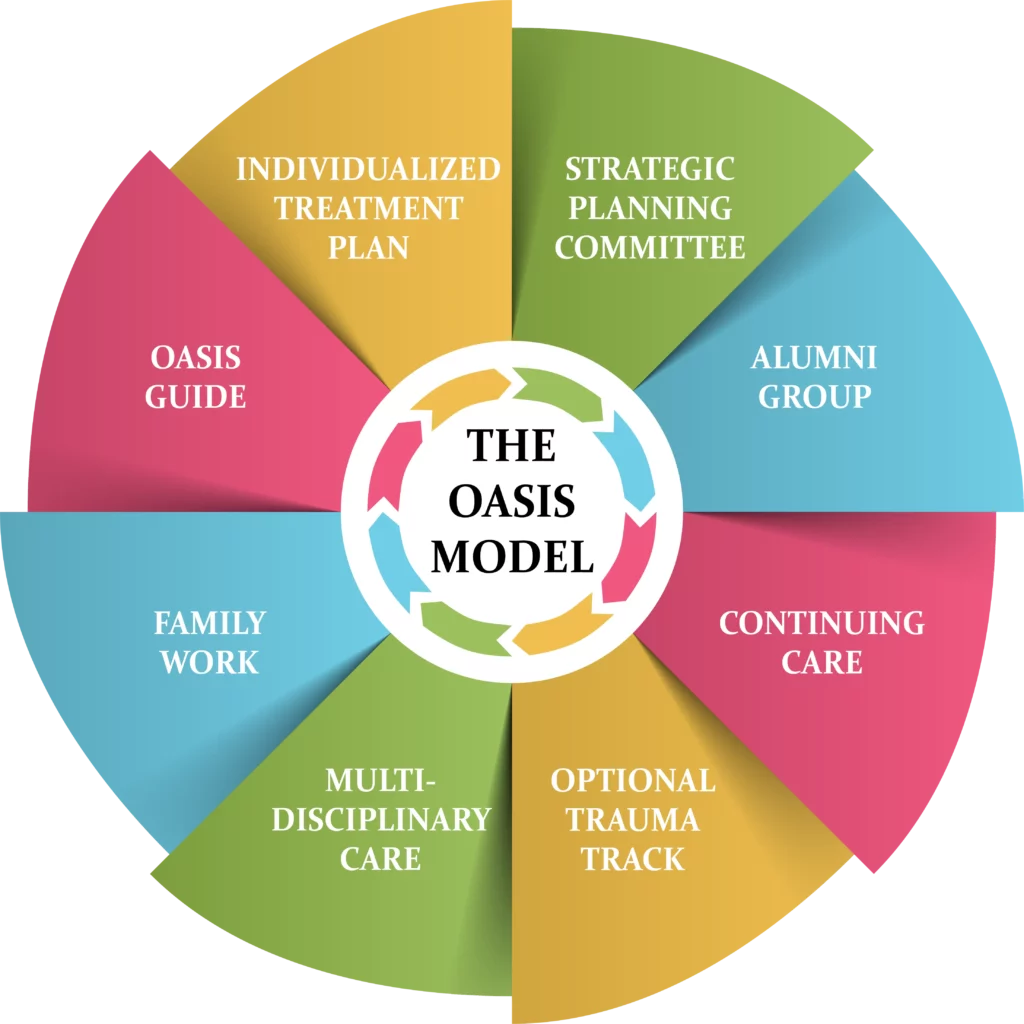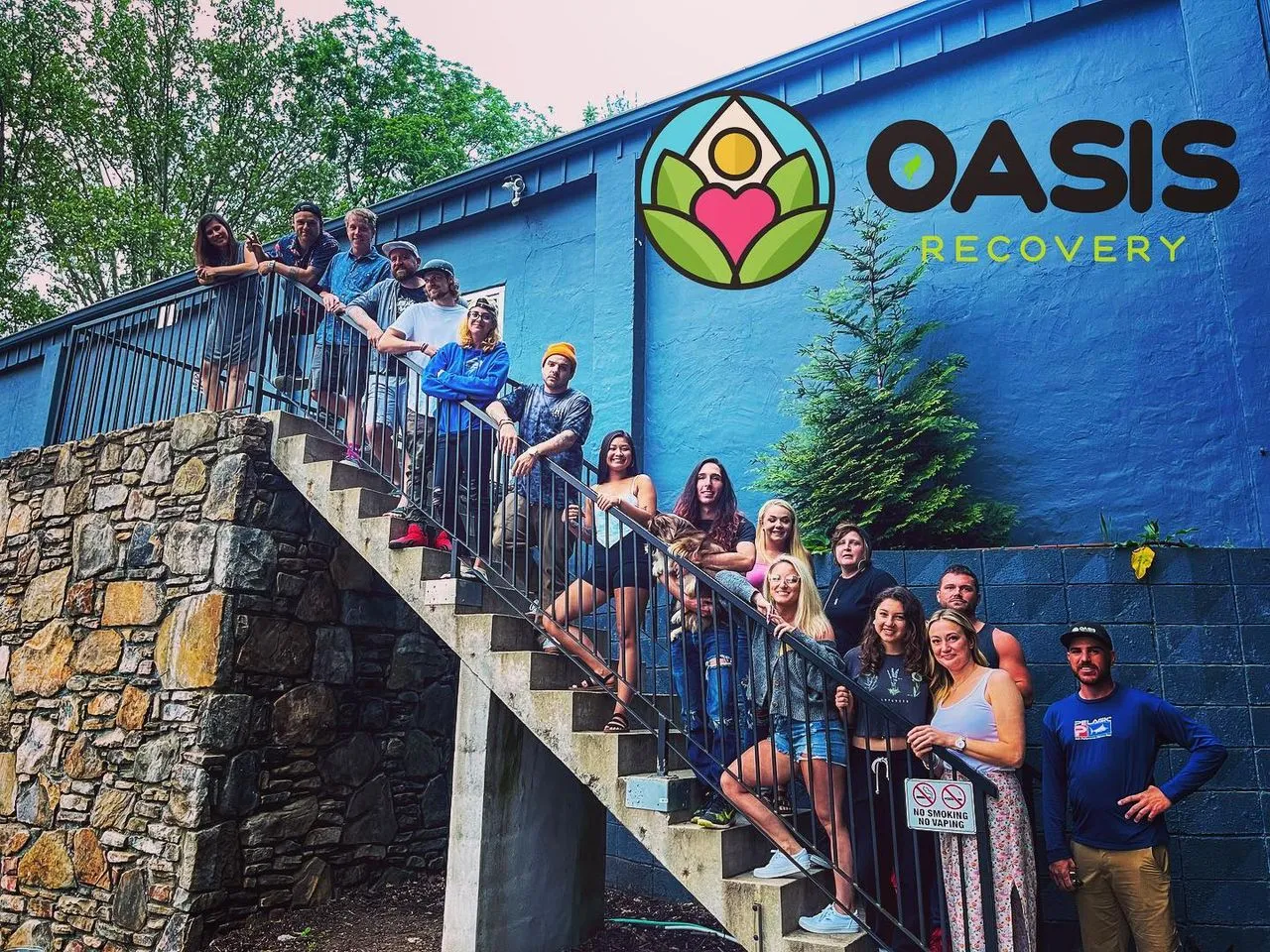Trauma-Informed Care in Asheville, North Carolina
Oasis Recovery Center recognizes the impact traumatic experiences have on individuals struggling with drug or alcohol abuse and proudly offers trauma-informed addiction treatment in Asheville, North Carolina.







At Oasis Recovery Center, we understand and continue to study the complex and stressful contributors behind substance use and addiction, including traumatic experiences and memories. We believe in connecting with each of our clients on a personal level, and before you begin any of our treatment programs, our intake team will sit down with you to learn about your needs and unique history.
One of our clinicians explains the impact that grief and trauma can have in relation to addiction
From there, we’ll design a treatment plan that focuses on the whole person, humanizes their needs, and increases the chances of successful recovery. Addiction is an impersonal and unhealthy way to deal with trauma, and our goal is to support you with the kindness and human connection you deserve.
Trauma-Informed Care at Oasis Recovery Center
Trauma-informed care (TIC) at Oasis Recovery Center involves screening and assessing a client’s history of trauma, assigning them to the most effective treatment program, and ensuring all the clinicians, case managers, treatment therapies, and healing modalities within the program are sensitive and responsive to the individual’s history. This treatment method is not meant to address the traumatic experience itself but the way the experience impacts our client’s lives and addictions. Some of the key goals of trauma-informed care include:
- Establishing healthy coping mechanisms
- Improving self-image and confidence
- Positive mindset changes
- Overcoming emotional and physical triggers
- Improving self-care
- Building a trustworthy support network
What Is Trauma?
Trauma is when someone experiences a frightening, stressful, harmful, or distressing event that is difficult to cope with, process, or express. While most people experience an event that could be considered traumatic, some individuals live through extreme and painful events that aren’t easy to let go of emotionally. This can lead to feeling powerless, trapped, ashamed, and unsupported and cause us to reach out to the closest thing that provides comfort.
This sense of hopelessness and need for comfort can lead to self-destructive behavior, like substance abuse, simply because it offers quick emotional relief. Individuals already struggling with mental health conditions who turn to drugs and alcohol can exacerbate their anxiety, depression, and traumatic stress. Many addictions begin after experiencing:
- Natural disasters
- Sexual abuse
- Serious injuries
- Loss of a loved
- Witnessing an accident or violent act
What’s Included In Trauma-Informed Care?
Here are a few treatment therapies and healing modalities our trauma-certified specialists use.
- Eye Movement Desensitization And Reprocessing (EMDR): EMDR helps clients focus on healing the emotions, thoughts, and behaviors resulting from traumatic experiences by changing how the brain stores and processes memories.
- Somatic Experiencing Therapy: Somatic experiencing therapy helps clients incorporate their bodies in processing trauma using bodily sensations, guided imagery, behavior, emotions, and perceptions.
- Trauma-Informed Yoga Therapy: Our trauma-informed yoga sessions help clients learn gentle ways to deal with stress held in their bodies while still recognizing signs of dissociation and distress during the treatment process.
- Cognitive Behavioral Therapy (CBT): Cognitive behavioral therapy helps clients learn how to identify, assess, and modify maladaptive behaviors and beliefs that cause additional distress and impair the ability to function or heal.
Take Our Addiction Quiz for Recovery Insights
Advantages Of Trauma Treatment in Asheville, NC
- Safety: Our clients can feel safe and comfortable at our treatment center knowing their specific triggers and history are acknowledged and considered.
- Trust & Transparency: Our case managers and clinicians are dedicated to creating a trusting and transparent relationship with every client.
- Peer Support: Many of our staff come from similar backgrounds and can personally share and relate to the day-to-day challenges in addiction treatment.
- Collaboration: Our clinicians frequently collaborate to design groups, exercises, and workshops that bring everyone together while tailoring the focus to each member’s trauma treatment goals.
- Empowerment: Trauma-informed treatment plans strive to empower clients and support them in overcoming feelings of powerlessness and weakness that may result from past experiences.
- Humility & Responsiveness: Our staff recognize and address the disparities that impact the trauma treatment and outcomes of vulnerable populations and demographics.
How Trauma-Informed Care At Oasis Recovery Is Different
At Oasis Recovery Center, we strive to address and support every client’s needs through intentional program placement. Clients are screened and placed in treatment programs and treatment groups that specifically address their goals. Other treatment providers might impersonally group clients struggling with trauma together without identifying their different situational needs. You are more than addiction and trauma, and you won’t be placed in any program if it doesn’t meet your needs.
The foundation of our center, The Oasis Model, is not based on unrealistic expectations or heavy, regimented education. Our trauma-informed treatment plans focus on raw, personal, and unbiased human connection. Upon completing any of our programs, your subsequent journey—whether it leads to a sober living or outpatient facility—will consistently align with your trauma-informed treatment plan, ensuring your recovery goals remain the same as you transition back into daily life.

Is Trauma-Informed Care Right For You?
If any of the following behaviors or symptoms resonate with you, ask our intake specialists about incorporating trauma-informed care into your addiction treatment plan.
- You use substances to cope with past traumatic experiences.
- You experience frequent and distressing flashbacks or intrusive memories.
- You avoid situations, places, or people that may trigger memories of trauma.
- You struggle to manage and regulate intense emotions.
- You struggle to form and maintain healthy relationships.
- You experience physical manifestations of trauma such as headaches, stomachaches, or tension.
- You struggle with sleeping and have frequent nightmares.
- You have a negative self-image or low self-esteem.
Connect With Us Now
Reach out to us now for immediate support, or let us know the best time to contact you through our confidential callback service. Your journey to healing is just a conversation away.
Contact Oasis Recovery Center
If you’re struggling with finding an addiction treatment center that simultaneously treats trauma and addiction, contact Oasis Recovery Center in Asheville, NC. Our treatment specialists work with individuals on a one-on-one level to design personalized trauma-informed treatment plans. Addiction and trauma can feel isolating, and our empathetic clinicians understand this.
At Oasis Recovery, we are family and do everything in our power to ensure you are comfortable, supported, and empowered at all stages of treatment and beyond. This ranges from providing transportation to and from our treatment center to taking the time to stop at the grocery store for a client’s snack or cigarette request. Call, email, or fill out a form today to get started.

FAQs
Reviewed By A Specialist In The Field
Vern Eleazer
Vernetta received her Master of Science degree in Clinical Mental Health Counseling at Western Carolina University, and she also holds a MA in History and a BA in Theatre Arts. She is trained in Acceptance and Commitment Therapy (ACT) and uses ACT to help clients decrease their suffering and move in the direction of their values. She is passionate about the effectiveness of Experiential Therapy, and has witnessed clients accessing their underlying issues with the aid of creative approaches. She believes in the power and influence of the group process and its ability to propel clients into committed action through the solace of connection. Vernetta is also a HeathRhythms drumming facilitator and enjoys empowering clients to express themselves through rhythm.



